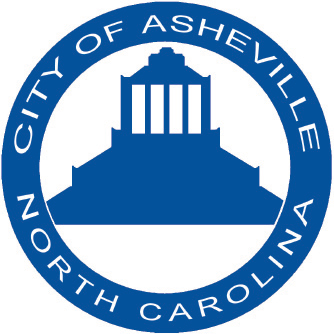It’s not the $3.7 million that residents urged members of Asheville City Council to earmark for reparations at their last meeting, but it may be a start. On Tuesday, Nov. 10, Council will consider a resolution to establish a reparations fund with $1 million.
The short resolution comes nearly four months after Council members made a historic commitment to address inequities in housing, education, urban development and health care among Asheville’s Black community. It also follows an Oct. 27 resolution to suspend the sale or change in use of any city property acquired through urban renewal, with the exception of a pending sale to White Labs Inc, a yeast manufacturing company.
Both July’s reparations resolution and the current funding request were spearheaded by Council member Keith Young, who unofficial results indicate will be ousted from his seat after placing fourth in this year’s competitive City Council race. As of Nov. 6, meeting documents did not indicate where the $1 million would come from or what initiatives would be funded first.
Aside from formally apologizing for the city’s role in urban renewal, Asheville’s reparations resolution directs City Manager Debra Campbell to develop recommendations to “address the creation of generational wealth” in the Black community and establish a commission to “make significant progress toward repairing the damage caused by public and private systemic racism.” The document also calls upon state and federal authorities to “initiate policymaking and provide funding.”
In other news
Council will consider an amendment to Asheville’s Land Use Incentive Grant Policy. Council has directed that LUIG, which provides monetary incentives to developers who create affordable housing, be updated annually; the 2020 iteration includes clarification on annual rent increases, rental assistance scoring and the procedure for assessing tax value.
The amendment will now require at least 20% of a development’s units to meet the city’s affordability standards for households earning 80% or less of the area median income, up from a 10% requirement last year. At least 5% of the units must accept rental assistance, including housing choice vouchers.
City staff will also present a five-year consolidated plan to meet community affordable housing and development needs. According to staff reports, rental assistance for households at or below 60% AMI, housing for individuals with disabilities and homeownership in low-income households are the top three current priorities. The plan also includes the 2020-21 annual action plan for Community Development Block Grants and the HOME Investment Partnerships program.
Consent agenda and public comment
The consent agenda for the meeting contains 13 items, which will be approved as a package unless singled out for separate discussion. Highlights include the following resolutions:
- An extension of the city’s contract with Young Transportation to supplement transit service during the COVID-19 pandemic. The contract, which will now last until April 30, 2021, will increase by $560,000, bringing the total cost since June 1 to $1,522,000. City staff have received nearly $3.69 million in federal CARES Act funding to offset transit costs during the pandemic.
- A resolution to join an interlocal agreement with Buncombe County, the Housing Authority of Asheville and the Asheville City Board of Education to provide free internet services for residents in the Southside community, Hillcrest Apartments, Pisgah View Apartments, Klondyke Homes and Deaverview Apartments. The city will be responsible for $50,000 of the project’s $520,000 cost.
- An ordinance to establish a $10 monthly upcharge for the rental of a bear-resistant trash can. The fees will help cover the costs associated with the purchase of 340 bear-resistant trash cans, available on a first-come, first-served basis to city residents.
- A roughly $141,000 budget amendment for the Police Buncombe County Anti-Crime Task Force. The money, already received by the city from federal criminal seizures, would be put in a special revenue fund to support a firearm trade-in initiative.
Tuesday marks the final Council meeting for Julie Mayfield, Brian Haynes and Young. If the unofficial general election results remain unchanged, Sandra Kilgore, Sage Turner and Kim Roney will join Mayor Esther Manheimer, Vice Mayor Gwen Wisler, Sheneika Smith and Antanette Mosley in December.
The full meeting agenda and supporting documents can be found at this link. Due to COVID-19, Council will meet remotely, and the meeting will be livestreamed through Asheville’s Public Engagement Hub.
Members of the public who wish to speak during the meeting must sign up in advance at this link or call 828-259-5900 no later than noon on Monday, Nov. 9. City staff will then use the list of registered speakers to manage the speaker queue during the meeting.
Prerecorded voicemail messages can also be left at 855-925-2801, meeting code 8133; written comments can be sent to AshevilleCityCouncilNov102020@PublicInput.com. Emails will be accepted for 24 hours after each public hearing.





How about a reparations fund for the victims of capitalism?
Does Keith Young’s fourth place showing in the election suggest that voters do not support the reparations fund?